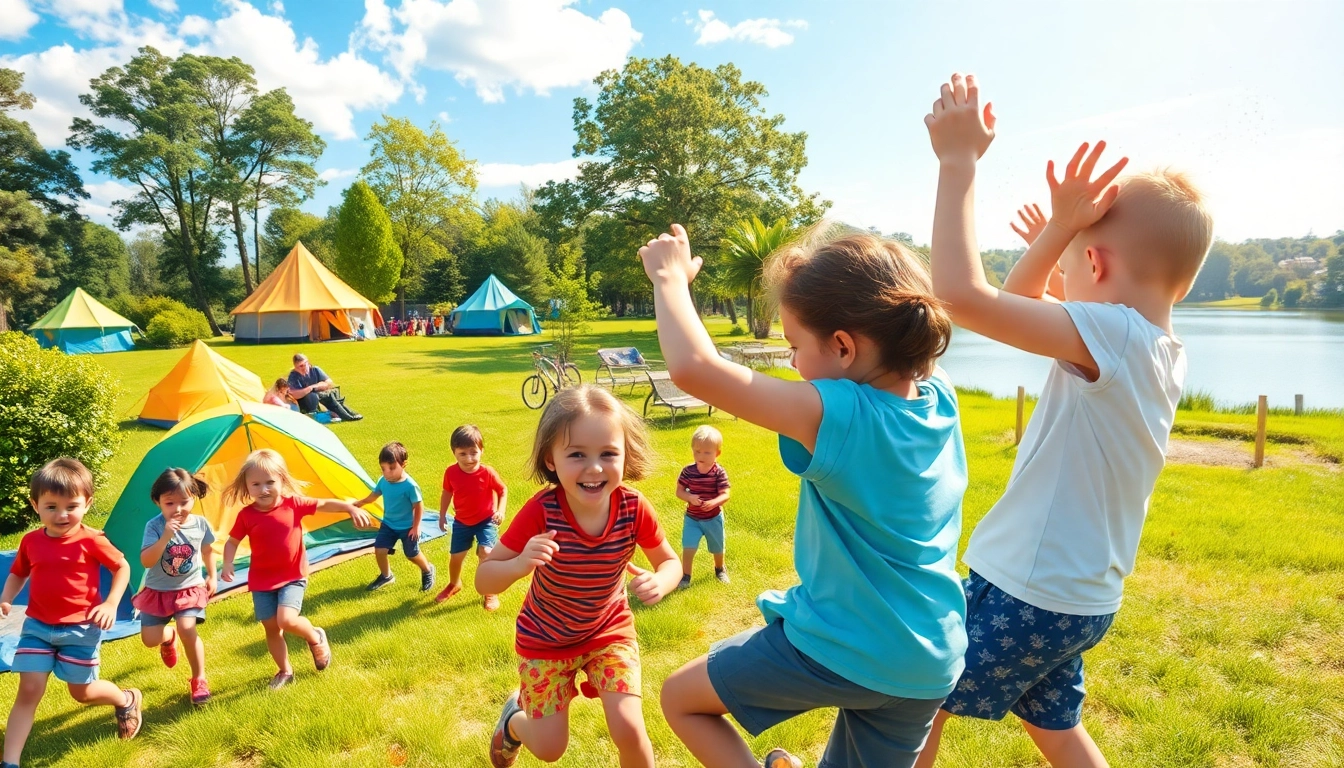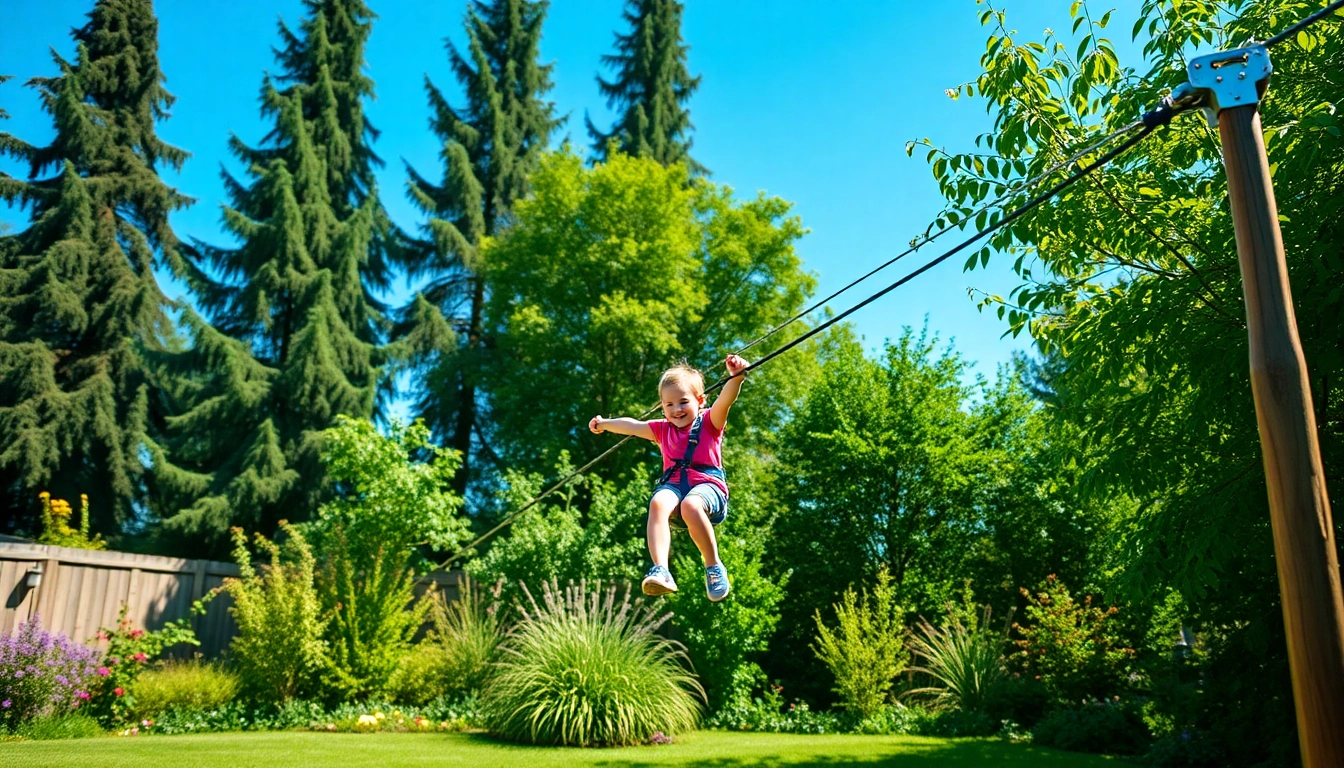Understanding Holiday Camps
Holiday camps have long been a cherished tradition for families seeking a mix of adventure, education, and fun during school breaks. These camps are more than just places to stay; they are vibrant communities where children can engage in various activities that promote personal growth, social skills, and lifelong memories. This article delves into the essence of holiday camps, exploring what they are, the different types available, their benefits, and how to select the right camp for your child. For an enriching holiday experience, consider finding holiday camps that suit your needs.
What Are Holiday Camps?
A holiday camp is an organized program typically held during school breaks that offers children a range of recreational activities, educational opportunities, and social experiences. The concept originated in the United Kingdom in the mid-20th century, designed initially for lower-income families who sought affordable vacation options. Today, holiday camps cater to various interests and age groups, focusing on outdoor adventure, creative workshops, sports, and more.
Types of Holiday Camps Available
There is an array of holiday camps available to meet diverse needs and preferences. Let’s explore some of the most popular types:
- General Holiday Camps: These camps offer a broad range of activities, from sports and arts to science and nature explorations.
- Sports Camps: Focused on specific athletic skills, these camps provide expert coaching in various sports such as soccer, basketball, tennis, and swimming.
- Arts Camps: Designed for budding artists, these camps allow kids to explore visual arts, theater, music, and dance.
- Adventure Camps: Tailored for thrill-seekers, adventure camps offer activities like rock climbing, hiking, zip-lining, and kayaking.
- Academic Camps: These camps blend fun and learning, focusing on subjects like math, science, language arts, and technology.
- Specialized Camps: Catering to children with specific interests or needs, these include camps for STEM, coding, environmentalism, or those with disabilities.
Benefits of Attending Holiday Camps
Sending your child to a holiday camp can unlock numerous benefits that contribute to their development:
- Social Skills Development: Camps provide a unique environment for children to make new friends, learn teamwork, and practice empathy through group activities.
- Independence and Confidence: Being away from home and facing new challenges helps children gain confidence and self-sufficiency.
- Variety of Activities: Camps offer exposure to new experiences that children may not encounter in their typical environment, fostering a well-rounded skill set.
- Physical Fitness: Engaging in sports and outdoor activities promotes physical health and encourages an active lifestyle.
- Creativity and Problem-Solving Skills: Activities that require creativity, such as arts and crafts, inspire innovation and critical thinking.
Activities Offered at Holiday Camps
One of the highlights of any holiday camp is the range of activities available to campers. Here, we explore some of the most common activities:
Popular Outdoor Activities
Outdoor activities are a staple of holiday camps, allowing campers to connect with nature and engage in physical fitness. Popular outdoor activities include:
- Nature Hikes: Exploring local trails and natural habitats teaches children about the environment and wildlife.
- Team Sports: Games such as soccer, basketball, and volleyball foster teamwork, competition, and physical well-being.
- Canoeing and Kayaking: Water sports help build confidence and resilience while promoting teamwork.
- Archery and Camping Skills: These activities teach focus and patience, as well as essential survival skills.
Creative Workshops and Learning Opportunities
Camps often feature creative workshops that allow children to express themselves and develop new skills. Examples include:
- Arts and Crafts: From painting and pottery to scrapbooking and woodworking, these activities nurture creativity and fine motor skills.
- Drama and Dance: Exposure to performance arts boosts confidence while allowing campers to express their emotions artistically.
- Science Experiments: Hands-on science activities encourage inquiry and promote a love for learning through exploration.
Sports and Team-Building Experiences
The foundation of many holiday camps lies in promoting physical fitness and teamwork through sports. Activities designed to build these skills can include:
- Relay Races: These promote camaraderie and teach children the importance of teamwork.
- Obstacle Courses: Designed to challenge physical prowess and problem-solving skills, these courses often include elements of fun, such as mud pits and balance beams.
- Group Challenges: Activities like trust falls and teambuilding games encourage communication and cooperation among campers.
Finding the Right Holiday Camp
Choosing the right holiday camp is vital to ensuring a positive experience for both children and parents. Here are some factors to consider:
Factors to Consider When Choosing
- Location: Proximity to home can influence convenience and emergency access for parents. Consider whether a day camp or overnight camp is appropriate.
- Age-Appropriate Activities: Ensure the camp provides activities that are suitable and appealing for your child’s age group.
- Safety and Staffing: Investigate the camp’s safety protocols, counselor-to-camper ratios, and staff qualifications to ensure your child’s safety and well-being.
- Camp Philosophy and Values: Understanding the camp’s educational philosophy and values can help you determine if they align with your family’s beliefs.
Reviews and Recommendations
Word of mouth and reviews can be excellent tools for researching holiday camps. Here are some strategies for gathering insights:
- Seek recommendations: Ask friends, family, and neighbors for their experiences and suggestions.
- Online Reviews: Websites, social media platforms, and forums can provide insights from past campers and parents, giving you a well-rounded perspective.
Questions to Ask Before Enrollment
Before finalizing your choice, it’s essential to clarify any questions or concerns with camp organizers. Consider asking:
- What is the daily schedule like? Understanding the structure and flow of the day can help set expectations.
- What meals are provided? Inquire about meal plans, dietary offerings, and snacks to accommodate allergies or preferences.
- What are the emergency procedures? Knowing the camp’s response plan can ease worries about safety.
- Are there any additional costs? Clarifying any hidden fees for special activities, trips, or materials can help in your budgeting process.
Preparing for Holiday Camps
Once you’ve chosen the right holiday camp, preparing your child becomes the next step. Proper preparation can help ease fears and maximize enjoyment.
Packing Essentials for Campers
Creating a comprehensive packing list ensures that children are well-equipped for their camp experience. Essentials include:
- Comfortable Clothing: Pack weather-appropriate clothing, including layers, rain gear, and sturdy footwear.
- Personal Items: Toiletries, sunglasses, and sunscreen are essential for personal hygiene and protection.
- Special Items: If your child has a favorite toy, blanket, or book, consider including it to provide comfort during the camp experience.
Preparing Your Child for a New Experience
As the camp date approaches, consider these tips to help your child transition:
- Discuss Expectations: Talk about what they can expect at camp, including activities, making new friends, and the daily routine.
- Visit the Camp: If possible, take a tour of the camp beforehand to familiarize your child with the surroundings.
- Encourage Positive Thoughts: Focus on excitement and adventure, addressing any fears or anxieties they may express.
Understanding Camp Policies and Safety
Before camp starts, it’s crucial for parents to fully understand the camp’s policies and safety measures. This includes:
- Health Protocols: Understand how the camp handles health issues, including vaccination requirements and medication administration.
- Behavioral Policies: Familiarize yourself with the camp’s behavior expectations and disciplinary actions to reinforce them at home.
- Communication Channels: Know how to stay in touch with camp staff and how they handle communication with parents.
Maximizing the Holiday Camp Experience
To ensure your child has the best possible experience at holiday camp, focus on engagement, continuous learning, and the joy of shared memories. Here’s how:
Engaging with the Camp Community
Encouraging children to engage actively with their camp community can significantly enhance their experience. Consider these methods:
- Interact with Counselors: Encourage your child to communicate openly with camp staff, who are trained to support and guide campers.
- Participate in Group Activities: Emphasize the importance of teamwork and collaboration through participation in group events and activities.
- Develop Friendships: Foster connections with peers by encouraging your child to make an effort to socialize and bond with others.
Follow-Up Activities Post-Camp
The experience of attending holiday camp doesn’t have to end when the camp is over. Implementing follow-up activities can reinforce learnings and memories:
- Culminating Events: Host a gathering where campers share stories and experiences with friends and family.
- Reflection Activities: Encourage children to write journaling entries or create scrapbooks summarizing their experiences and new friendships.
- Reconnect with Friends: Plan get-togethers with other campers to help maintain friendships made at camp.
Sharing Stories and Memories
Sharing stories is a beautiful way to celebrate the camp experience. Encourage your child to express their memories by:
- Creating a Storyboard: Visual storytelling aids memory retention and allows for creative expression.
- Participating in a Camp Reunion: Many camps organize reunions, providing an excellent opportunity for campers to reconnect and reminisce.
- Discussing Camp Takeaways: Engage in conversations about what your child learned and how they plan to apply new skills or values back home.



